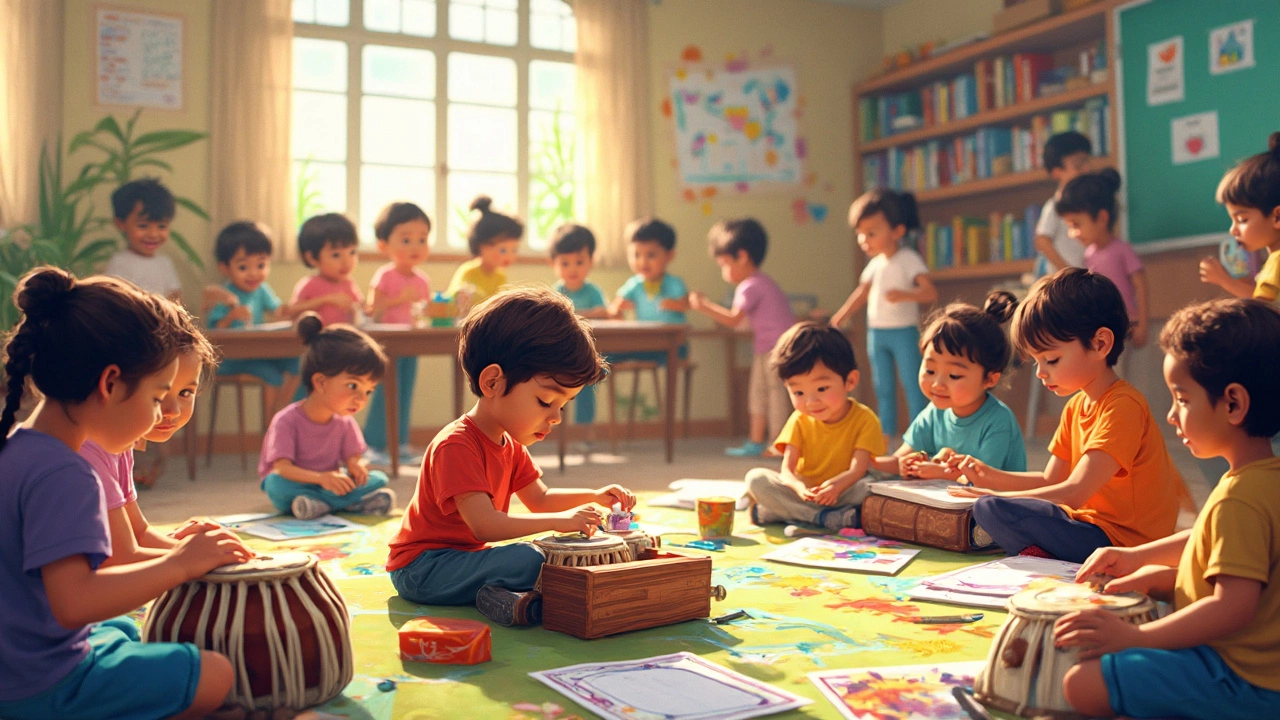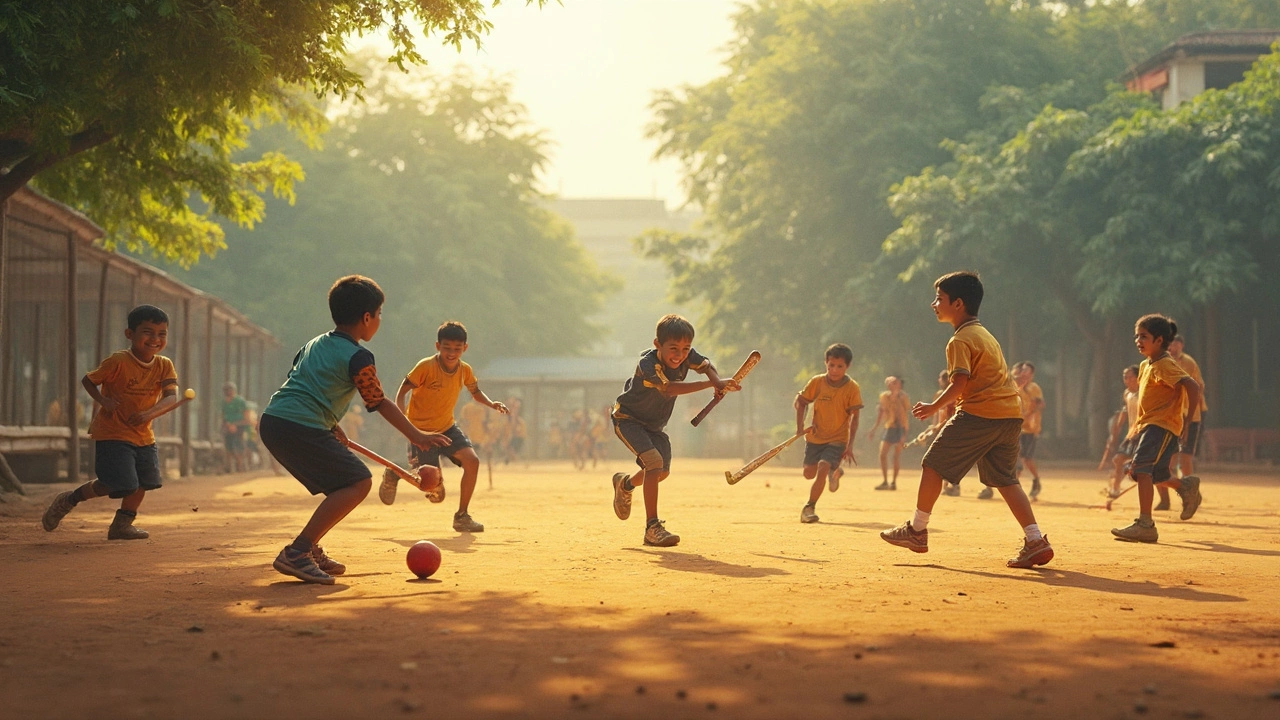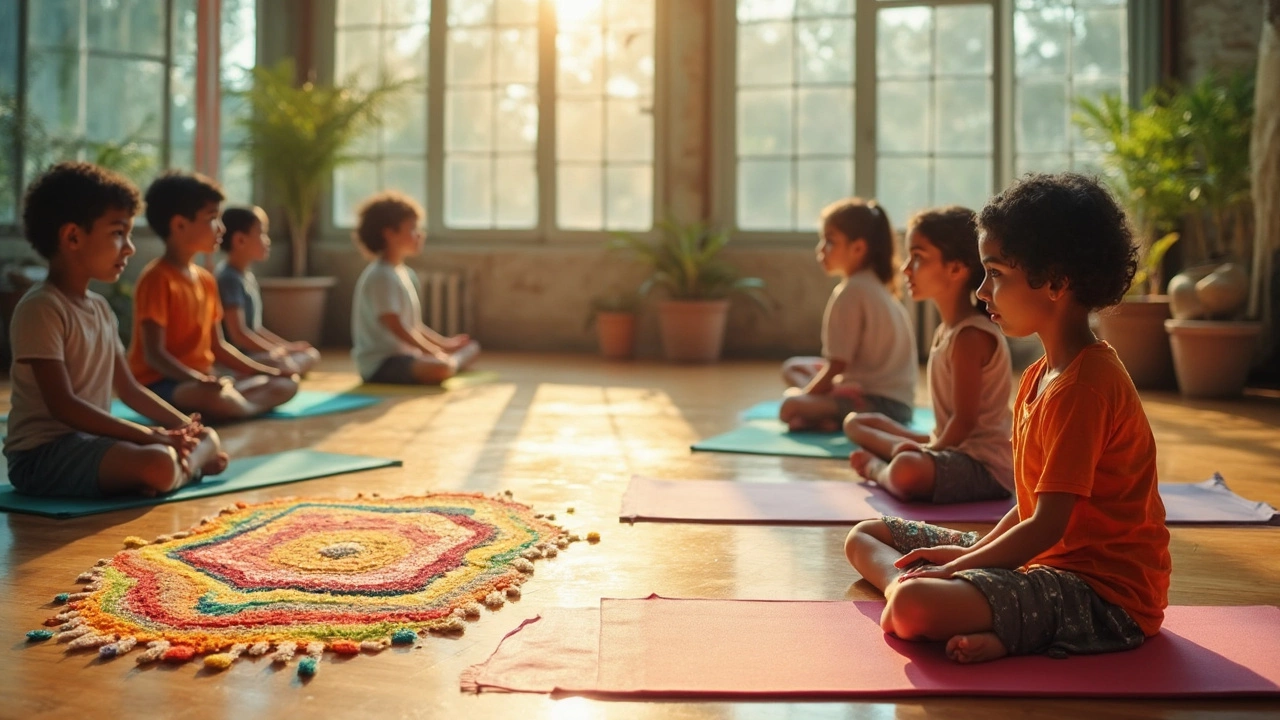Are After School Activities Good for You?
 Apr, 1 2025
Apr, 1 2025
You know that moment when the last bell rings and kids race out of school like they’re in an Olympic sprint? While some head straight home, others stick around for various after-school activities. But are these activities actually good for them?
First off, what exactly are after-school activities? Basically, they are organized programs that kids participate in outside regular school hours. From sports teams to debate clubs, there’s a whole world to explore after that final bell. But why bother with them at all?
- What Are After School Activities?
- Benefits for Personal Development
- Social Advantages
- Impact on Academic Performance
- Choosing the Right Activity
What Are After School Activities?
After-school activities are like mini-adventures right on the school grounds or nearby. These are organized programs that kids engage in once the regular school day wraps up. They cover a massive range of interests, from sports like soccer and basketball to artsy things like painting or drama clubs.
Wondering why schools bother with this stuff? It's all about giving kids a chance to explore their passions outside regular classes. If your kid's obsessed with robots, joining a robotics club could be their jam. On the flip side, if they’re not keen on sports but love music, the school band might be perfect.
These after-school activities serve as a sweet spot for kids to unwind while still learning. It's not only about sharpening skills but also about making friends and having fun after a day filled with math equations. Plus, they provide a structured environment that's supervised, so parents know their kids are safe post-school.
With more schools recognizing their benefits, activities could range from purely recreational or highly structured ones. Recreational ones might be gardening or storytelling sessions. On the structured side, you'll find options like coding clubs and chess leagues that can even lead to competitions.
Check out the variety your local school offers. It might surprise you how many clubs there are.
Benefits for Personal Development
After-school activities can do wonders for a child's personal growth. Imagine a setting where kids can explore what they're truly into, away from the pressure of grades and exams. That sounds promising, right?
When kids participate in after-school activities, they pick up a bunch of cool skills. Think about it—the teamwork required in sports, the creativity sparked in art classes, or the discipline learned while mastering a musical instrument. These aren't just hobbies. They're building blocks for valuable life skills.
Kids also get better at time management. Let's face it, juggling school, family, and clubs is no easy feat. But as they learn to prioritize and manage their time effectively, they're better prepared for life's hustle and bustle later on.
Another massive plus is self-confidence. Imagine a shy kid joining a drama club and, with practice, owning the stage during a performance. When kids see themselves improving, it boosts their confidence, helping them to tackle future challenges with a can-do attitude.
Plus, there's resilience! Not everything will go smoothly. Not every game is won, and not every note is hit perfectly, but those little setbacks teach kids to bounce back. And let's be honest, resilience is one life lesson that never goes out of style.
- Teamwork in sports translates to collaboration skills.
- Music and arts help in creativity and self-expression.
- With practice, kids learn to manage time like pros.
- Confidence grows when they see themselves improve.
Finally, personal development isn't just about learning to do things. It's about growing into the kind of person who can handle whatever life throws their way. So, yeah, these activities aren't just extracurricular—they're essential!

Social Advantages
We all know that school isn't just about math tests and science experiments. It's a social playground too! After-school activities offer kids a chance to hang out and connect with others outside the usual classroom setting.
Take a look at team sports. Being part of a soccer or basketball team doesn't just teach kids how to dribble or shoot. It teaches them teamwork, communication, and how to handle wins and losses—skills that are super useful not just in school, but in life.
Many kids clubs, like drama or debate teams, boost confidence and public speaking skills. A theater kid might confidently take center stage now and, in the future, confidently tackle job interviews or presentations. Plus, the friendships formed in these clubs can last a lifetime.
Another cool thing is how after-school activities can break down barriers. Kids from different grades, schools, or backgrounds come together with shared interests. Suddenly, everyone's learning a little bit more about each other, which opens up their social circles.
Interestingly, studies have shown that students participating in extracurriculars tend to develop better social skills. They learn how to listen, collaborate, and even lead. It's amazing how much kids grow just by being part of a chess club, or helping plan the school's end-of-year carnival!
Sure, not every kid is going to end up being the most social butterfly, but these activities offer a nudge in the right direction. Whether they're shy or outgoing, there's a place for everyone to belong and feel more connected.
Impact on Academic Performance
When it comes to after-school activities, you might wonder if they're just a fun distraction or if they actually help with the serious stuff, like grades. Funny enough, there's a bunch of research showing that kids involved in after-school activities often do better in school. How cool is that?
One big reason is the skills they pick up along the way. Take time management, for example. Juggling homework with soccer practice or band recitals teaches them how to organize and prioritize. That's a life lesson right there! Plus, these activities can help boost their self-esteem. A kid who feels good about acing a tough piano piece might just bring that confidence to a math test.
There's also a whole social aspect. Kids in extracurricular activities have more chances to make friends. That social support can be huge. It creates a sense of belonging, which can lead to positive attitudes both inside and outside the classroom.
And if you're into stats, check this out: According to a 2023 survey, students participating in after-school clubs were 15% more likely to achieve higher grades in core subjects compared to those who didn't participate.
| Activity Participation | Improvement in Grades |
|---|---|
| Sports Teams | 12% |
| Music Clubs | 10% |
| Academic Clubs | 18% |
In that light, getting involved in a student development activity isn't just about filling free time — it's like a booster shot for their academic journey. Are all activities created equal? Not exactly, but we'll get to that later!

Choosing the Right Activity
Picking the right after-school activities for your kid isn't as simple as tossing darts at a board. It’s all about striking a balance between their interests and personal development goals. But how do you get it just right?
First, think about your child's interests. Are they passionate about soccer, obsessed with painting, or maybe have a hidden talent for debate? Matching activities with their passions is key. After all, you wouldn’t want to sign up a music-hater for piano lessons.
Next, consider the logistics. Make sure the activity fits seamlessly into your child’s schedule without turning it into a hectic mess. Also, keep travel time and the location of the activity in mind. Nobody likes a long commute, especially when it eats into homework or relaxation time.
It's also vital to try and mix things up. Encouraging a blend of physical, creative, and academic activities can offer a well-rounded experience. Here’s a simple approach:
- Physical: Sports like soccer or swimming help boost fitness levels.
- Creative: Art classes or theater can spark imagination.
- Academic: Chess or coding clubs enhance critical thinking.
Don't forget to keep an eye on your kiddo. If they seem overwhelmed or stressed, it might be time to reassess. It's fine for them to take a break and switch things up. Balance is way more important than a packed schedule.